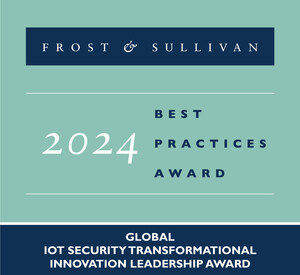Early Rollout of 5G in Asia-Pacific Requires Careful Strategies from Mobile Network Operators and Strong Government/Regulator Support
Initial focus on select markets and spectrum/network sharing to manage price points will expedite 5G take-off, finds Frost & Sullivan's Digital Transformation team
KUALA LUMPUR, Malaysia, Aug. 15, 2017 /PRNewswire/ -- The imminent rollout of 5G will transform the telecommunications industry in Asia-Pacific. As internet speeds go up and data costs come down, new industries will emerge and the playing field between mobile network operators (MNOs) and fixed broadband providers will level out. Justifying the high implementation costs of 5G in the developing world alongside 4G, where 4G is still growing from its current 10% penetration and demand for 5G services is finite or limited, will, however, prove a restraint. Fitting 5G efficiently into existing 2G/3G/4G MNO networks and services portfolios while managing customer migration will also be challenging.
"The push for faster internet speeds through 5G will come from governments and industry regulators that realize its potential contribution toward a country's economic growth and digital economy transformation," said Frost & Sullivan Digital Transformation Industry Principal Quah Mei Lee. "At company level, the fact that the true extent of investment required for 5G is not known and business models for monetization are not yet clear complicates matters."
5G in Asia-Pacific, Forecast to 2022, recent research from Frost & Sullivan's Mobile & Wireless Communications Growth Partnership Service, is based on extensive research involving MNOs, network equipment vendors, and industry experts. The study examines key features, use cases, potential market size and rollout time frames, likely frequencies and spectrum considerations, and 5G deployment approaches for MNOs. It covers country markets, including South Korea, Japan, China, Hong Kong, Taiwan, Australia, New Zealand, Singapore, Malaysia, Indonesia, Thailand, the Philippines, Vietnam, Cambodia, India, Bangladesh, Pakistan, Myanmar, Laos and Brunei, along with global benchmarking against the US, EU and UK markets.
Click here for complimentary access to more information on this analysis and to register for a Growth Strategy Dialogue, a free interactive briefing with Frost & Sullivan's thought leaders.
Click here to join us for a complimentary webinar on "5G in Asia-Pacific, Forecast to 2022" at 3.00pm (+8 GMT) on 17 August 2017.
Frost & Sullivan estimates that 5G service revenue in Asia-Pacific will reach US$4.50 billion by 2022 with 280.4 million 5G subscriptions. Factors driving the market include:
- Potential for real-time use cases such as artificial intelligence (AI), augmented reality/virtual reality (AR/VR), and connected vehicle that can bring a new era in digital services and fresh revenue sources for MNOs;
- MNO focus on monetizing their 4G network and upgrading to 4.5G or long-term evolution advanced (LTE-A) Pro to be ready for 5G when it is finally commercialized;
- Government support for 5G in populous countries such as China and India; and
- New business models that will emerge out of the trials by MNOs at the upcoming Winter and Summer Olympic Games in South Korea and Japan respectively.
Frost & Sullivan expects that unless there is sufficient demand from consumers for 5G use cases or specific use cases that can generated volume, MNOs may find it more cost effective to upgrade to 4.5G and then push it to the limits prior to upgrading to 5G. Spectrum and network sharing is expected with 5G, especially in developing countries. Network sharing can reduce the number of sites required by 30-40 percent, capital expenditure by 20-30 percent and operational expenditure by 25-30 percent. In fact, regulators in each country may decide to mandate spectrum/network sharing to overcome spectrum scarcity and introduce 5G at the right price points to their markets earlier.
"The optimum trigger point for MNOs to rollout 5G will be when the pricing for 5G hardware/software and devices, including smartphones, reaches mass market price points," noted Mei Lee. "This will likely materialize at the earliest by 2023 or closer to 2025."
Meanwhile, developments in 5G will lead to opportunities for industries such as the cloud, software and network equipment manufacturing to increase their revenue potential. Trials by MNOs will lead to understanding of local demand which is a crucial first step to business model formulation and a necessary step towards 5G monetization. However, it will take time for the solutions to be developed, the necessary partnerships to be forged and workable business models to crystalize. Also, as with other disruptions, there needs to be time for regulations to catch up with new 5G use cases.
Overall, 5G will play a key role in modernizing and transforming digital businesses and the opportunities lie not only with MNOs but also with the industry. There is certainly a lot of challenging work ahead if 5G is to materialize by 2020.
About Frost & Sullivan
Frost & Sullivan, the Growth Partnership Company, works in collaboration with clients to leverage visionary innovation that addresses the global challenges and related growth opportunities that will make or break today's market participants. For more than 50 years, we have been developing growth strategies for the global 1000, emerging businesses, the public sector and the investment community. Contact us: Start the discussion
5G in Asia-Pacific, Forecast to 2022
P967-65
Contact:
Carrie Low
Corporate Communications – Asia Pacific
P: +603 6204 5910
F: +603 6201 7402
E: carrie.low@frost.com






Share this article